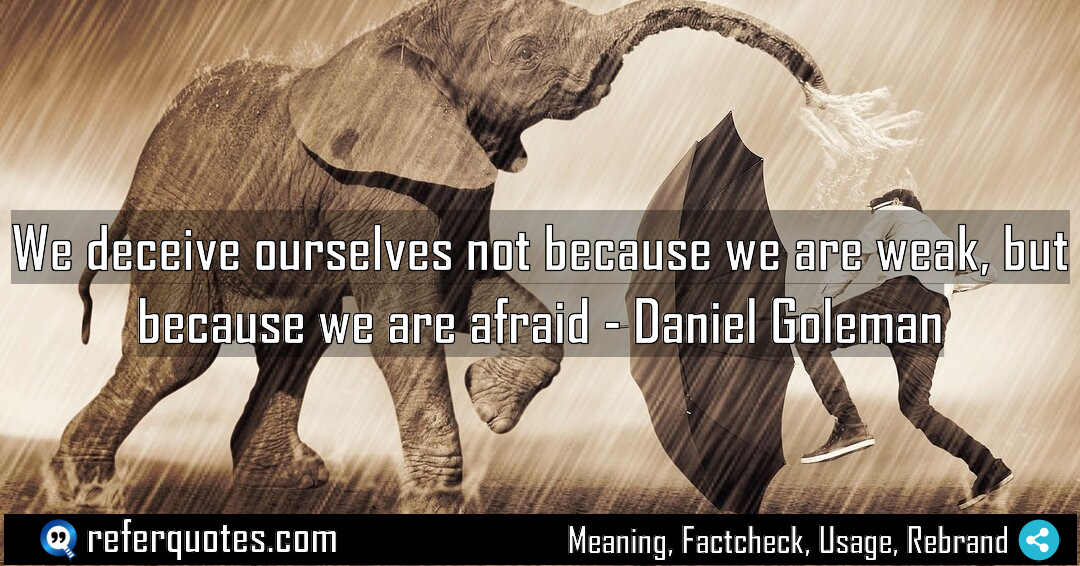We deceive ourselves not because we are weak… it’s a powerful reframing of why we lie to ourselves. This isn’t about a character flaw, but a survival tactic for our psyche. Let’s break down what Goleman is really getting at here.
Share Image Quote:Table of Contents
Meaning
At its core, this quote flips the script. Self-deception isn’t a sign of a weak mind; it’s a defense mechanism, a protective shield we build because we’re terrified of facing certain painful truths.
Explanation
Okay, so think about it this way. We often beat ourselves up for not seeing reality clearly, right? We call it weakness. But Goleman argues that’s missing the point entirely. The real engine here is fear. Raw, gut-level fear.
Our psyche would rather construct a comfortable lie than stare into the abyss of a truth that could shatter our self-image, our relationships, or our entire worldview. It’s not that we can’t handle the truth. It’s that we’re afraid of the emotional earthquake that will follow. The mind is protecting itself from a perceived threat, not succumbing to a lack of strength. It’s a brilliant, if ultimately self-sabotaging, coping strategy.
Quote Summary
| Context | Attributes |
|---|---|
| Original Language | English (3668) |
| Category | Emotion (177) |
| Topics | fear (92), vulnerability (47) |
| Literary Style | poetic (635) |
| Emotion / Mood | empathetic (29), introspective (55) |
| Overall Quote Score | 87 (185) |
Origin & Factcheck
This insight comes directly from Daniel Goleman’s 1985 book, Vital Lies, Simple Truths: The Psychology of Self-Deception. It’s a deep dive into the mechanics of how and why our minds trick us. You sometimes see this sentiment floating around unattributed, but the precise phrasing and the foundational concept are Goleman’s work from the mid-80s.
Attribution Summary
| Context | Attributes |
|---|---|
| Author | Daniel Goleman (125) |
| Source Type | Book (4032) |
| Source/Book Name | Vital Lies, Simple Truths: The Psychology of Self-Deception (61) |
| Origin Timeperiod | Modern (530) |
| Original Language | English (3668) |
| Authenticity | Verified (4032) |
Author Bio
Daniel Goleman is a psychologist and bestselling author whose journalism at The New York Times brought brain and behavior science to a wide audience. He earned a BA from Amherst and a PhD in psychology from Harvard, and studied in India on a Harvard fellowship. Goleman’s research and writing helped mainstream emotional intelligence, leadership competencies, attention, and contemplative science. He co-founded CASEL and a leading research consortium on EI at work. The Daniel Goleman book list includes Emotional Intelligence, Working with Emotional Intelligence, Primal Leadership, Social Intelligence, Focus, and Altered Traits.
| Official Website
Where is this quotation located?
| Quotation | We deceive ourselves not because we are weak, but because we are afraid |
| Book Details | Publication Year: 1985; ISBN: 9780743240156; Last edition: 1996 Harper Perennial; Number of pages: 288. |
| Where is it? | Approximate page from 1996 edition, Chapter 2: The Ecology of Mind |
